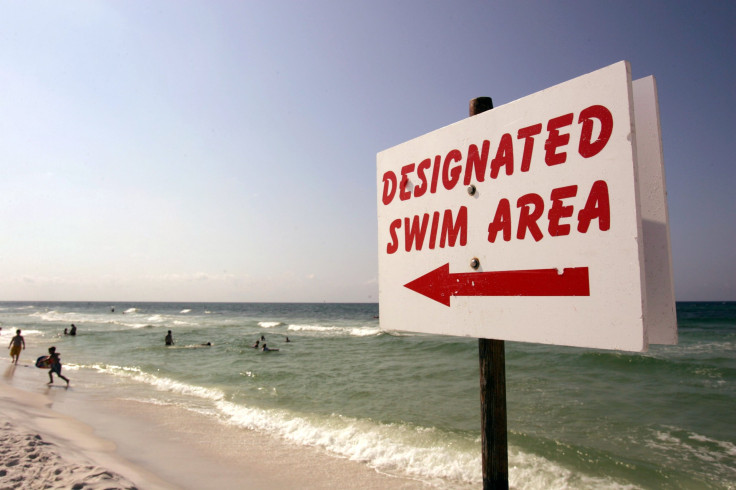Shark Attacks Seal On Chatham Beach, Swimmers Warned

A great white shark attacked a seal on a Chatham Beach, Massachusetts, forcing closures in the area, town officials said Thursday. Concerns sparked after the predator was seen feasting on the sea creature inside Chatham Harbor near the Lighthouse Beach.
Authorities issued an alert to warn beachgoers urging them to avoid swimming in the stretch after the shark sighting. The message was reportedly sent out through the Sharktivity app operated by the Atlantic White Shark Conservancy along with the Massachusetts Division of Marine Fisheries.
Chatham police told the local media Thursday that the Lighthouse and the Harding Beach were temporarily closed to swimmers for safety reasons. It was unclear for how long the closure would continue.
Read: Stingray Feasts On Oval Squid At Japanese Aquarium, Stuns Visitors
The growing population of gray seals off the Massachusetts coastline has prompted sharks to lurk around, Senior Fisheries Biologist Dr. Greg Skomal told ABC's WCVB 5 network.
As a precautionary measure, the National Park Service which manages the beaches of the Cape Cod National Seashore issued a few tips to the beachgoers. The park authorities said the beachgoers must immediately inform a lifeguard if they spot a shark. The protocol followed by the park includes a temporary ban on swimming and surfing if a shark is spotted. Authorities also warned people from swimming near the seals as they are often targetted by the sharks. The park service also said people must avoid entering the waters around dawn or dusk as these are the times when sharks are mostly close to the beach areas.
There have been very few cases when sharks have been spotted inside the harbor, local media reports said, adding that most sightings have been off Monomoy and Nauset beaches.
In June, experts predicted there would be an increase in shark sightings off Cape Cod this summer. The assessment was made after studying the population in the area for a brief period of time.
In 2014, Massachusetts Marine Fisheries recorded 68 shark sightings while the number increased to 147 in 2016.
“They have multiplied in numbers exponentially since I became the chief,” Orleans fire chief Anthony Pike told the Boston Herald in June. “Great white sharks comprise about 30 percent of my daily work right now and I never, ever thought that would be a thing.”
Marine Fisheries scientist Gregory Skomal told National Geographic in 2016: “It’s not if, it’s when in terms of somebody being fatally attacked. We’ve got seals being eaten within 100 meters of surfers. Think about that. Cape Cod is coexisting right now, but we haven’t had the attack; we haven’t had that fatal attack.”
Read: Disturbing Photos Of Abducted Model Chloe Ayling Released With Dark Web Advert
Sharing his knowledge on sharks, Skomal told the Boston Herald that they may attack humans mistaking them for seals.
“You know, biting the person thinking that it might be a normal prey item like a seal,” he said. “Typically, the shark won’t eat the person. As a result, though, white sharks have very big jaws and shark teeth and cause traumatic injuries and those kinds of traumatic injuries could lead to fatality.”
© Copyright IBTimes 2025. All rights reserved.





















